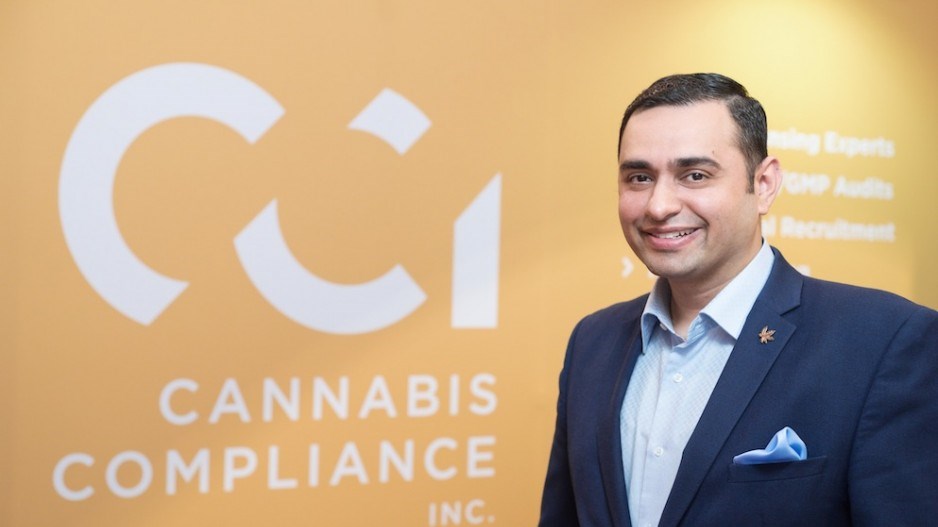B.C.’s newly named Liquor and Cannabis Regulation Branch (formerly the Liquor Control and Licensing Branch) will start accepting applications from entrepreneurs who want to operate cannabis-retail stores in early August, the province announced July 5.
Key to getting a licence is to follow a carefully structured step-by-step process.
Before we get to that, however, here are a few quirks in the licensing process that Cannabis Compliance Inc. consultant Deepak Anand pointed out to Business in Vancouver.
The first peculiarity in the regulations is that the B.C. government is creating a new kind of licence that it calls a “cannabis marketing licence.”
This licence will allow marketers or public relations firms to market products to cannabis-store owners. Non-growers, (no one other than licensed producers), are not able under federal law to market their products to retailers. So the new licence class for marketers fills the gap and allows marketers to pitch products from the growers to the retailers. B.C. is the only province so far to have licences for marketers and those marketers would only be able to do their marketing within B.C., Anand said.
“I’m sure there’s going to be limitations around what this person with the marketing licence can do but in general federal regulations allow for fairly limited marketing opportunities,” he said. “So this really gives an avenue for somebody who is a marketer to work with the licenced producers across the country and with owners of retail stores in B.C.”
A second significant detail in the new regulations is that there can be an unlimited number of cannabis stores in the province. That is unlike some other provinces.
Each retail store requires a separate licence. While there is no cap on the number of retail stores, no individual or company can have more than eight cannabis retail store licences if they are the sole licensee, or significant shareholder (defined as 20% or more of the voting shares).
A final significant detail in the regulations, according to Anand, is that the government appears to be leaving open the possibility in the future to allow small growers to also sell their products through a new class of retail licence that would be like wineries selling “farm-gate.”
There is, however, a slight lack of clarity surrounding the government’s intention on this initiative because of the way the government has worded its regulation, Anand said.
Some other key things for entrepreneurs to know is that the new process includes what the government calls “rigorous security screening,” but current operators of illegal cannabis dispensaries will be allowed to apply for retail licences.
There will also be much communication with local governments and Indigenous nations.
When the Liquor and Cannabis Regulation Branch receives an application, it will notify the appropriate local government or Indigenous nation.
“The branch must receive a positive recommendation in order to consider the application," the document notes. "The positive recommendation will be considered, but is not binding on the Liquor and Cannabis Regulation Branch.”
Now, here's that step-by-step primer
First, the potential cannabis retailer must register the business as sole proprietorships, partnerships or corporations and be registered to collect provincial sales tax. Indigenous-nation applicants may apply as one of those three categories or in their own right. Applicants must also have a business number, or a nine-digit number that the Canadian Revenue Agency issues.
Second, individuals, partnerships, corporations or Indigenous nations seeking to submit applications must have a special business number that the B.C. government issues and calls a BCeID number. This enables the business to log into government sites.
Third, the business must own, lease or have an agreement to lease a store location.
Fourth, the business must make a formal application with information about the applicant and associates – including, but not necessarily limited to directors, shareholders (direct and indirect) and partners. This process also involves things such as security screening, financial integrity check, declarations of financial, business and family connections. It also involves paying an application fee.
Fifth, the business must get conditional local government or Indigenous nation approval
Sixth, the business actually secures the location and meets terms and conditions of the licence, including signage.
Seventh, the business must pass a store inspection.
Eighth, the business receives the licence and displays the licence prominently in the store.
Ninth, the business hires, trains and registers with the province its employees.
Tenth, the business may order cannabis products.
Finally, it can open its doors and report its sales to government on a regular basis.
To read the full government report, click here.
(Note: The original version of this story said that it was growers that were not able to market to retailers. In fact it is non-growers)




